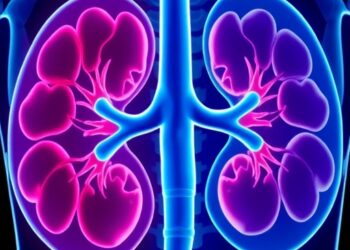Researchers at UC Merced used fruit flies to uncover a cellular process common to many organisms that could dramatically impact the understanding of cancer and aging.
Researchers at UC Merced used fruit flies to uncover a cellular process common to many organisms that could dramatically impact the understanding of cancer and aging.
Department of Molecular and Cell Biology Professor Fred Wolf, then-graduate student Sammy Villa and Genentech Vice President and Senior Fellow in Physiological Chemistry and Research Biology Vishva Dixit, discovered a mechanism that cells use to tune how much protein they make through the process of translating RNA into protein.
“This mechanism may be responsible for changes in protein translation in stress, cancer, and aging,” Wolf said.
Their work is detailed in the journal Nature Communications.
Wolf and Dixit have a working relationship dating back to when Wolf was an undergraduate and a technician in Dixit’s research lab at the University of Michigan. They stayed in touch after Wolf went to graduate school at Berkeley and Dixit went to Genentech, a member of the Roche Group and a pioneer in biotech industry.
“Vishva knew I was an expert in Drosophila (fruit fly) genetics, a resource that was not available at Genentech,” Wolf said. Normally, Wolf’s lab focuses on understanding the brain circuits and genes that control animal behavior, particularly how alcohol affects the brain and motivation is represented in it.
He and his researchers use Drosophila, a popular choice among researchers because they are inexpensive to work with, reproduce quickly and abundantly and it is easy to alter their genetics to test ideas. Research centered on the fruit fly has led to many sophisticated tools, Wolf said.
But Dixit wanted to understand the function of the protein OTUD6.
“He asked us to use the awesome power of the fly model to discover its function, and we took up the challenge,” Wolf said. “Vishva granted me seed funding to start generating flies with mutations in OTUD6 and testing the mutant flies for any problems they might have. The project really got going when the paper’s first author, Sammy Villa, joined my lab in 2018. Sammy took on the project and his skills in molecular biology and biochemistry were instrumental to the success of the project.”
At first, the researchers had no idea what they were looking for. When they first made flies that were mutant for OTUD6, they expected to see something obvious such as the shape or number of wings or reproductive abnormalities. Instead, the flies appeared normal.
“We stressed the flies in as many ways as we could conceive of and found they were susceptible to chemical stress, for example, oxidative stress,” Wolf said. “This allowed us to search for how OTUD6 contributed to resilience to stress.”
The researchers looked for all proteins interacting with OTUD6 to discover what it does and found it reduced the ribosomes’ protein production by half. The modification lets cells produce more protein.
“We were quite surprised by the huge impact OTUD6 had on how much protein was made in cells: Making flies mutant for OTUD6 cut protein production in half. That’s a big difference,” Wolf said. “The amount of protein produced in cells is known to affect how long animals live, with less protein being made correlating with longer lifespan. Our OTUD6 mutants lived twice as long. We think this is because there is less protein being made.”
The amount of protein generated can also have a huge impact on some types of cancers.
Some types of OTUD6 in humans is found in increased levels in many cancers, and many cancers have increased protein production. The researchers stressed that they have no direct evidence for a link, but increased OTUD6 might contribute to cancer cell growth and proliferation.
Cells can change their amount of OTUD6 to change how much protein is made.
“It has been known for years that there are two other ways for cells to actively tune how much protein is made, and we think we discovered a third way,” Wolf said.
The team is interested in finding out how the cell changes the amount of OTUD6 present in cells, which could help understand how this new pathway is initiated and could lead to new ways of manipulating protein production to positively affect lifespan and possibly even cancer outcomes.
Wolf is affiliated with the Health Sciences Research Institute and the Center for Cellular and Biomolecular Machines. Villa was a USDA Future Farmers scholar while at UC Merced and is now a postdoctoral scholar at Calico Life Sciences in South San Francisco.
Journal
Nature Communications
Method of Research
Observational study
Subject of Research
Animals
Article Title
OTUD6 deubiquitination of RPS7/eS7 on the free 40 S ribosome regulates global protein translation and stress
Article Publication Date
11-Aug-2024




